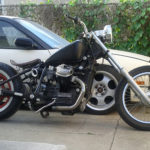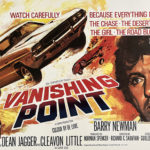Martin Scorsese’s mafiosi are similar to Takeshi Kitano’s yakuza, they are taciturn gloomy samurai who, when the opportunity presents itself, deftly control weapons. Just look at how Robert de Niro gracefully dances with a gun. Minimum movements and maximum efficiency. Seemingly ungainly and clumsy, he shows his best moves as a killing machine. The film Irishman (2019) is based on the book of revelations of a trucker in the service of the mafia, “I heard you paint houses.” “The Irishman” Frankie really painted a lot of houses. With the blood of their victims. So the idiom is almost literal.
Attention! The review contains spoilers revealing the content of the film.
These mafiosi are like oaks, they get stony and wrinkled over the years. Their souls are empty, their eyes and grimaces express regret, but they do their dirty work and do not reflect on it. They drive away all thoughts of good and evil. When Russell gives Frank the most morally difficult task, Frank’s face does not change much before and after it is completed. The film begins with this task, and then we move further in time, returning to the beginning of the path of the “painter” Frank Sheeran. And this act brings to mind the first Old Testament murder.
Joe Pesci, the boundless man from the Casino, has not been the same for a long time. He is already as old as a brontosaurus at the beginning of the film. And by the end of the film, sand is literally pouring out of him and everyone else. In prison, these “nice guys” fall apart. Only Angelo (Harvey Keitel) imperceptibly merged somewhere. Adult Peggy Sheeran (actress Anna Paquin), Frankie’s daughter is a True Blood Steakhouse Bitch.

Old Al Pacino looks more cheerful and younger than everyone (this is undoubtedly the merit of computer graphics). But his Jimmy Hoffa is livelier, more expressive and more humane than others. More straightforward and even more honest. It’s not for nothing that Frankie’s beloved daughter is friends with him and loves him more than her father. Jimmy, in a conversation with Tony Pro (actor Stephen Graham is also from the mafia theme, played Capone in the Underground Empire) throws: “yes, I’m a crook, but I’m not a racketeer, not a murderer.” Irishman mentions the Kennedy brothers and specifically the assassination of JFK, that there was a conspiracy and his death was ordered by mafia bosses. Also mentioned are the Caribbean crisis, Watergate and the American foreign “policy” of the 90s in Kosovo.
The same songs of the 50s-60s era sound as in Nice Guys, Casino and other Scorsese films. There is a lot of my favorite doo-wop music here, Marty Robbins A White Sport Coat (And a Pink Carnation), In the Still of the Night from Five Satins, the immortal Sleepwalk in the original version of Santo & Johnny. The naive kindness and charm of the songs contrast with the brutal realities of gangsters.
The Irishman, despite his 3.5 hours (of course, he did not surpass the duration Once in America, a film that cannot be reviewed now, and if possible, then only because of Morricone’s music) looks quite dynamic. And it is very dynamic for the old man’s cinema. Only the last 40 minutes the pace is slipping. There’s already a slow philosophical finale.
The main catch is that the old de Niro plays himself young. Well, this is impossible even with all computer technologies. If the face managed to be tightened and rejuvenated, then the gait, posture, figure – the body with weakened arms – remained old. Yes, and de Niro does not look like The Irishman, like a “macaroni man”!

The most dramatic episodes are, perhaps, Frank’s call to Jimmy’s wife, and Frank’s silent glances at Peggy, who pretends that her father does not exist. Sheeran’s wife died of lung cancer after barely waiting for him to get out of prison. Frankie seems to have 4 daughters, but they are infrequent guests in his last abode. Are they so callous and ungrateful, and that’s why they don’t want to communicate with their father? Or was he himself a bad parent, practically not present in their childhood, but their youth was poisoned by the fact that dad was considered a criminal authority outside the law? That’s what Frankie can’t understand in his declining years – he repented, so why isn’t he accepted?
I think it’s a severe ordeal for loved ones to know the other side of your loved one and not be able to fix it, or even talk about it. This soldier, a survivor of World War II, he could not stop and continued his war in peacetime. Striving to protect loved ones from the cruelty and rudeness of the world, he himself was the personification of all the worst. And this is not out of anger, but simply because it is money and power. Because in 1945 he himself returned home crippled and corrupted by the power of weapons. It is only in recent years that he has been trying to turn to God through the church, but it seems that he is not trying very hard. Yeah, of course, it’s enough just to pray sincerely, and you will immediately be absolved of sins. Really? No, of course it doesn’t work. It is impossible to wash off the “paint”.

Kitano ends the epic about his hero with the Last Outrage, with a smile and a barrel at his temple. Scorsese leaves an ellipsis, through the film denoting the death of all Cosa Nostra participants with subtitles. And most will not die of natural causes. And we won’t even see their deaths. By the end of his life, it will become obvious to Frank that it was all rather pointless to be left alone because of his work and die alone when the dearest beloved daughters turned away from you.
Our hero is unique, he survived everyone, lived to a very old age and can now die in silence. Leaving the door open in the hope that someone will come to say goodbye to him in the last hour. But after all, he will not go to heaven or hell. After all, he has a special case – he has been painting houses for half his life.














